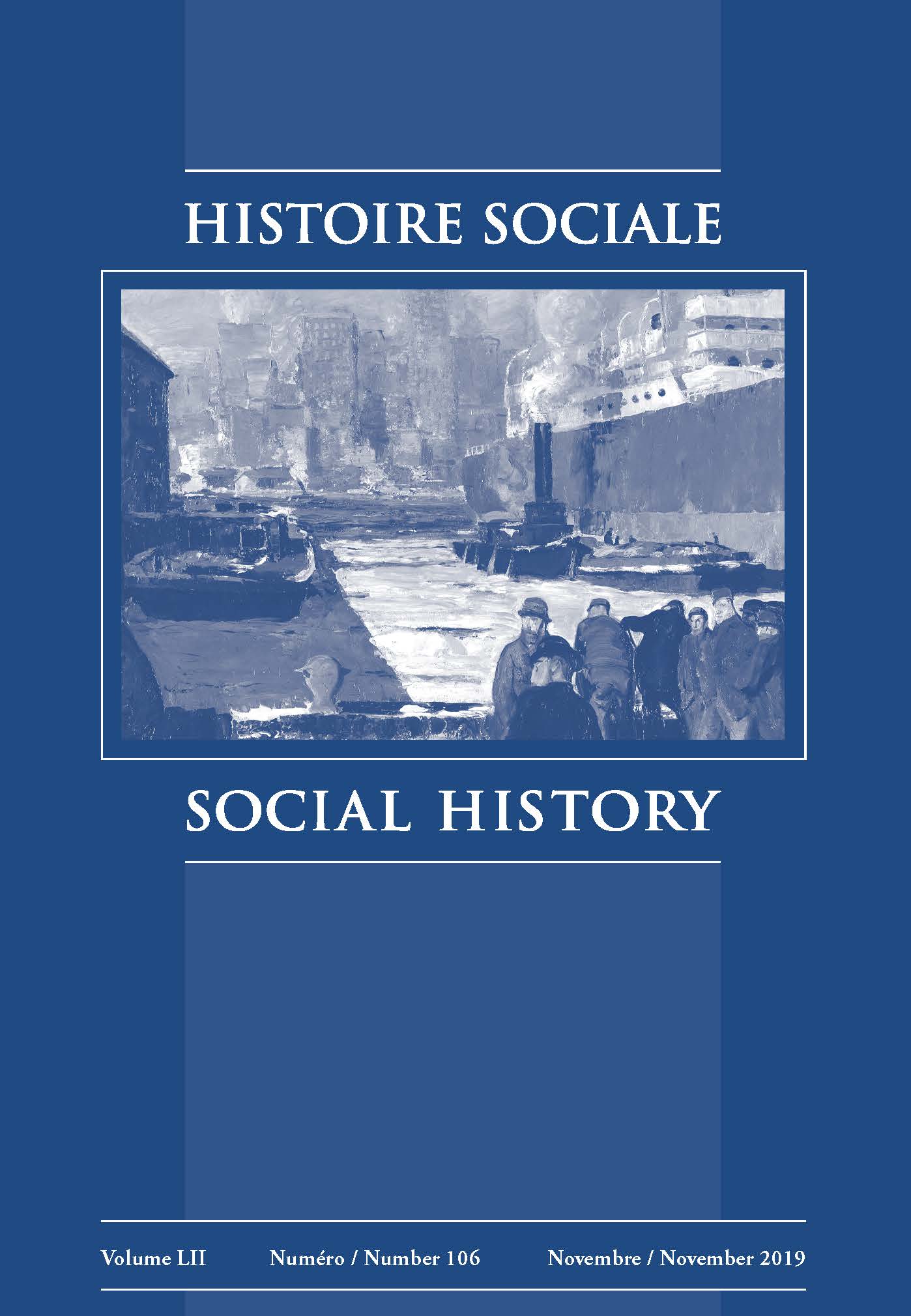“A Dragon, Bog-Spawned, Is Now Stretched O’er This Land”: The Ku Klux Klan’s Patriotic Protestantism in the Northeastern Borderlands During the 1920s and 1930s
DOI:
https://doi.org/10.1353/his.2019.0036Abstract
The Ku Klux Klan grew as a movement in Maine and New Brunswick during the 1920s and 1930s. Reflective of a larger wave of anti-Catholicism in the northeastern borderlands, the Klan presented itself as a bulwark against the impact of Catholic participation in civil society and as the defender of a Protestant, Anglo-Saxon culture under siege. Drawing upon Klan publications, public speeches and pronouncements, and private correspondence between Klansmen and sympathetic political figures, this article argues that the growth of the Ku Klux Klan in the Interwar Northeast reflected the construction of a transnational, ethnoreligious identity, termed “Patriotic-Protestantism,” that challenges interpretations of the Klan movement as simply nationalistic and highlights the importance of the borderlands framework to understanding Maine and New Brunswick in the twentieth century.


